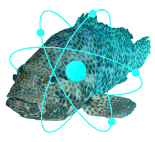Speaker
Description
In Italy, that of “Radiochemist” is now an “endangered species”…
After the Referendum of 1987, which produced, in fact, the exit of Italy by the programs for the peaceful use of nuclear energy, the number of young people, students and researchers, interested in nuclear disciplines has declined more and more to the current critical situation.
On the other hand, the need to characterize, from the radiometric point of view, solid and liquid materials coming from different origin and destined for different purposes is increasing. Radiometrical analyses must be performed for management of solid and liquid waste coming from different industrial processes (i.e.: Oil & Gas production, fertilizer production, etc.), to support and control different phases of intervention of the decommissioning and remediation of old industrial plant or for the monitoring of environmental and heath parameters (i.e. radioactivity in drinking water, characterization of building materials, ect.).
While the laboratories able to completely satisfy these requirements are very few and, except for some exceptions, with staff not properly prepared.
As well as the knowledge of specific radiometric measurement techniques, the preparation of the samples to be submitted to radiochemical analysis, requires very good analytical chemistry skills similar, as methodological approach, to those adopted for “trace” analyses.
For these reasons, the use of radiochemical techniques for the preparation and for the analysis of samples, applied to the handling of radioactive samples that can be acquired only with appropriate training in qualified laboratories and under the guidance of experienced tutors.
To remedy this complex situation it is necessary that the Universities, the Research Institutions and the Control Agencies for environmental and health protection take an active part in sensitizing, guiding and supporting young students in scientific disciplines, especially in Chemical Sciences applied to radiometric measurements.
